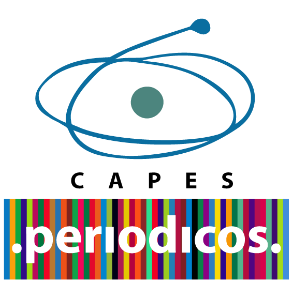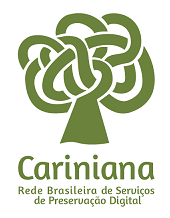Environmental education in teaching Geography and combating nature degradation
DOI:
https://doi.org/10.5433/2447-1747.2023v32n2p219Keywords:
Paisagem; Ensino de Geografia; Biodiversidade; Conservação da natureza.Abstract
This article aims to present an account of a pedagogical experience from the perspective of environmental education in the context of teaching Geography. This experience is inserted in the context of scientific pre-initiation, developed in the year 2022, in a state public school in the city of Adamantina/SP. It integrated elementary school II students through active methodologies through didactic sequences that provide a dynamic, problematized and contextualized character in the teaching and learning process, with openness to the creative process and research, with the objective of contemplating the transversal contemporary theme - Environment and Environmental Education, in accordance with the regulations present in the National Common Curricular Base (BNCC). In the context of this work, the concept of landscape assumes centrality to subsidize the reading of the concrete reality of the lived space and for the formation of critical and proactive citizens in society. The use of photography as a methodological resource allowed students to be open to creativity, stimulating dialogical interaction, criticality and conceptual formation, through perceptive, cognitive and cultural mechanisms of individual or group perceptions of students. We believe that the action can inspire other professors to carry out activities aimed at restoring ecosystems and combating the degradation of nature.
Downloads
References
BACICH, Lilian; MORAN, José. Metodologias ativas para uma educação inovadora: uma abordagem teórico-prática. Porto Alegre: Penso, 2018.
BOCK, Ana Mercês Bahia; FURTADO, Odair; TEIXEIRA, Maria de Lourdes Trassi. Psicologias: uma introdução ao estudo de psicologia. São Paulo: Saraiva, 2008.
BRASIL. Base Nacional Comum Curricular: Ensino Médio. Brasília: MEC/Secretaria de Educação Básica, 2018.
BRASIL. Lei nº 9.795, de 27 de abril de 1999. Dispõe sobre a Educação. Ambiental, institui a Política da Educação Ambiental e dá outras providências. Disponível em: https://www.camara.leg.br/proposicoesWeb/prop_mostrarintegra?codteor=634068&filename=LegislacaoCitada%20PL%204692/2009. Acesso em: 20 jan. 2023.
CALLAI, Helena Copetti. O estudo do lugar e a pesquisa como princípio da aprendizagem. In: 9 Encuentro de Geografos de America Latina, 2003, Mérida, Yucatán. Reflexiones e Responsabilidades de la geografía en America Latina para el siglo XXI. Merida: Impretei., 2003. s/p.
CAVALCANTI, Lana de Souza. A cidade ensinada e a cidade vivida: encontros e reflexões no ensino de geografia. In: Cavalcanti, Lana de Souza (org.). Temas da geografia na escola básica. Campinas: Papirus, 2013. p. 65-94.
DUBOIS, Philippe. O ato fotográfico. Campinas: Papirus, 1998.
DUNCAN, James. The city as text: The politics of landscape interpretation in the Kandyan Kingdom, Cambridge: Cambridge University Press, 1990.
FREIRE, Paulo. Pedagogia da Autonomia: saberes necessários à prática educativa. São Paulo: Paz e Terra, 1996.
MORETI, Nicole Mieko Takada, RUMIN, Cassiano Ricardo. Ensino de Geografia e prática docente interdisciplinar: Um diálogo entre a Geografia e a Psicologia. Geografia Em Atos (Online), 2(7), 59-78. Disponível em: https://revista.fct.unesp.br/index.php/geografiaematos/article/view/6101. Acesso em: 30 mar. 2023. DOI: https://doi.org/10.35416/geoatos.v2i7.6101
ROUILLÉ, André. A fotografia entre documento e arte contemporânea. São Paulo: Senac São Paulo, 2009.
SANCHES-JUSTO, Joana. O ato fotográfico: memória, prospecção e produção de sentidos na velhice. São Paulo: Cultura Acadêmica, 2013.
SANTOS, Milton. Metamorfoses do espaço habitado. São Paulo: Hucitec, 1988.
SANTOS, Rita de Cássia Evangelista dos; CHIAPETTI, Rita Jaqueline Nogueira. Uma investigação sobre o uso das diversas linguagens no ensino de geografia: uma interface Teoria e Prática. Geografia Ensino & Pesquisa, 15(3), 167-184, 2012. Disponível em: https://periodicos.ufsm.br/geografia/article/view/7353. Acesso em: 30 mar. 2023. DOI: https://doi.org/10.5902/223649947353
SÃO PAULO (ESTADO). Currículo Paulista Etapas Educação Infantil e Ensino Fundamental. Secretaria da Educação do Estado de São Paulo, 2019.
SOUZA, Marcelo Lopes de. Os conceitos fundamentais da pesquisa sócio-espacial. Rio de Janeiro: Bertrand Brasil, 2020.
PUNTEL, Geovane Aparecida. Paisagem: uma análise no ensino da Geografia. Dissertação de mestrado (Pós-graduação em Geografia). Porto Alegre: UFRGS, 2006. Disponível em: http://www.lume.ufrgs.br/bitstream/handle/10183/8818/000589540.pdf? Acesso em: 30 mar. 2023.
TRAVASSOS, Luiz Eduardo Panisset. A fotografia como instrumento de auxílio no ensino da Geografia. Revista de Biologia e Ciências da Terra, v.1, nº 2, s/p, 2001. Disponível em: http://eduep.uepb.edu.br/rbct/sumarios/pdf/fotografia.pdf. Acesso em: 30 mar. 2023.
TUAN, Yi-Fu. Topofilia: um estudo da percepção, atitudes e valores do meio ambiente. Londrina: Eduel, 2012.
VYGOTSKY, Lev Semionovitch. Aprendizagem e desenvolvimento intelectual na idade escolar. In: LURIA, Alexander Romanovich; LEONTIEV, Alexis N. Linguagem, desenvolvimento e aprendizagem. São Paulo: Ícone, 1988. p. 103 - 117.
Downloads
Published
How to Cite
Issue
Section
License
Copyright (c) 2023 Nicole Mieko Takada Moreti

This work is licensed under a Creative Commons Attribution-NonCommercial 4.0 International License.
The authors retain the copyright simultaneously licensing the work under the Creative Commons Attribution-NonCommercial 4.0 International license. This license allows third parties to distribute, remix, adapt, and develop the material in any medium or format for non-commercial purposes, giving due credit for authorship and initial publication in this journal.
The journal reserves the right to make normative, orthographic, and grammatical changes to the originals in order to maintain the standardized language and the credibility of the vehicle while still respecting the authors' writing style. Conceptual suggestions, changes, or corrections will be communicated to the authors when necessary.
The opinions expressed by the authors of the articles are their sole responsibility.
This work is licensed under a Creative Commons Attribution-NonCommercial 4.0 International license.



















